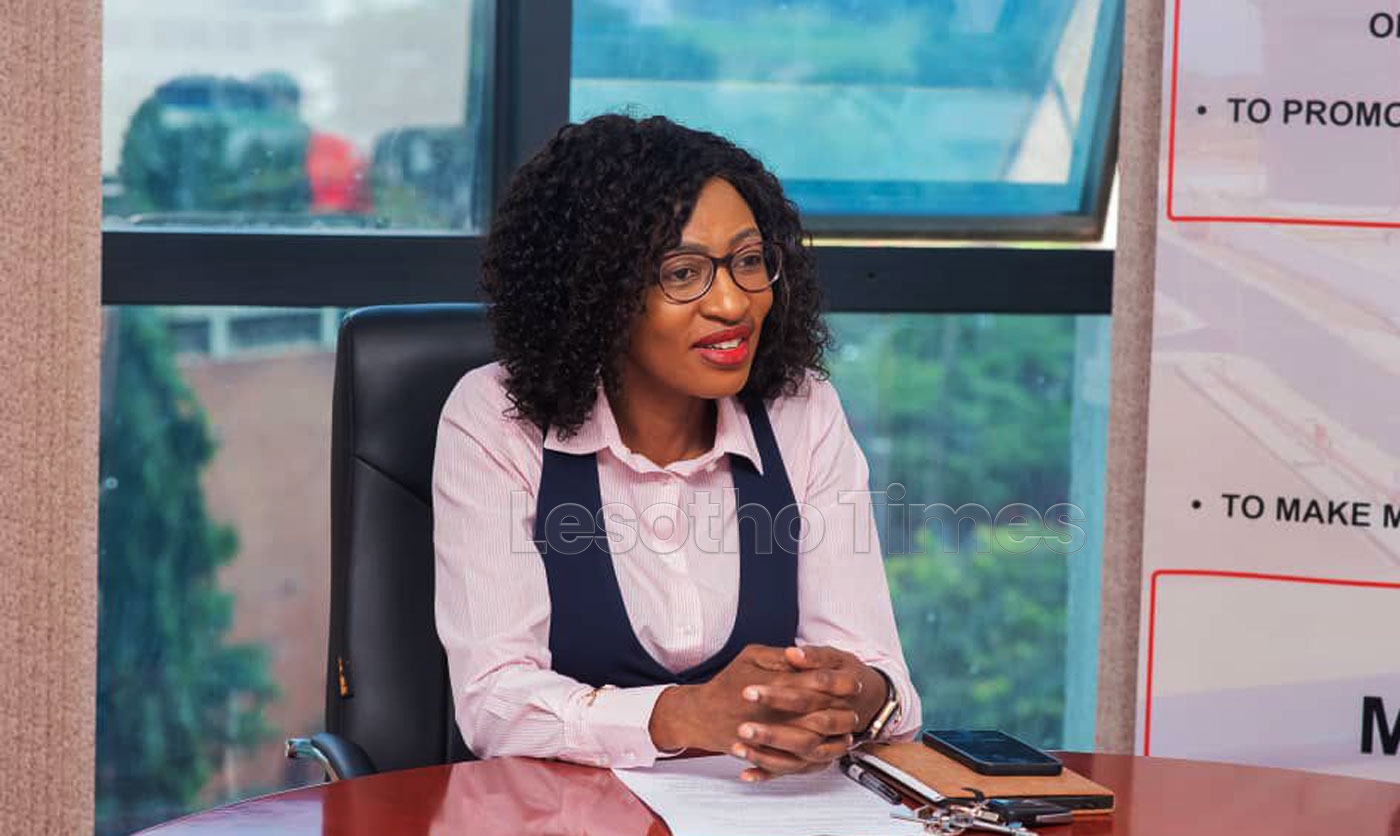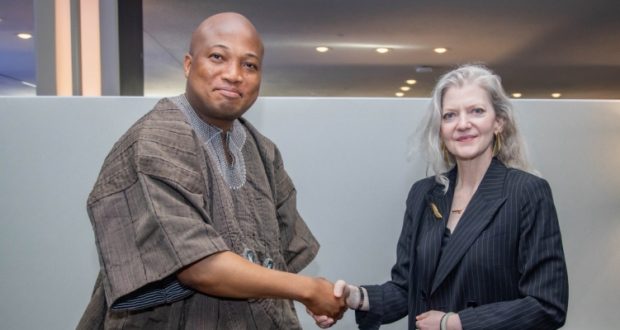Copyright lestimes

LESOTHO Highlands Water Commission (LHWC) Secretariat is set to undergo an intensive forensic investigation to determine whether the Commission Secretariat has been following sound financial governance, in particular procurement regulations. This according to the LHWC Secretary, Helen Thandi Buluma, who assumed office on 27 March 2025. Ms Buluma has said she detected possible financial and procurement missteps which prompted the Secretariat to consider a forensic investigation. In an exclusive interview in her office suite, Ms Buluma sat down with the Lesotho Times (LT) Senior Reporter Mohloai Mpesi. Excerpts below: LT: Please take us through your roles as the Secretary of the Commission. What is the mandate of the Commission? Buluma: My role is to support the Commission in its specific areas — to support administrative and financial management issues, and to manage the Secretariat for the Commission. It is also to provide governance support, give them information to make decisions, and manage the effectiveness of the Commission in terms of delivering its governance, as well as providing technical advice on the project. My role is also to coordinate. LT: Usually, staff resist changes brought by a new appointee. When you assumed office what kind of environment did you find, particularly with staff performance and their attitude towards you? Buluma: The first time I arrived I received a warm welcome. It is my first time in Lesotho and my first time working for a bi-national institution. I have worked for the United Nations, for parastatals in my own country and in different countries. Compared with other places I have worked, the reception here was super. I had to take time to understand what was wrong in the office. During my first month I was learning — understanding the culture and the environment and checking if proper systems were in place. From June I understood we had to start enforcing the policies that are here. In a nutshell, it was relaxed, very relaxed compared to where I come from. There was a very relaxed mood within the Secretariat and many policies were not being followed: procurement, financial management, governance frameworks. My role after three months was to ensure that we started following the policies that already exist. I didn’t bring change; I enforced what should have been happening. There was resistance, yes, but the majority worked well with me. It’s been a gradual journey where I felt welcomed. My role is to ensure that I work with everybody so they understand the direction I want to take. Resistance is usually expected in an institution where people are used to doing things differently and somebody else comes in. My approach to management is that if somebody decides not to follow the route we must take and continues undermining certain processes to the detriment of the Secretariat’s work — which will affect the support we give to the Commission — there are mechanisms to re-align those individuals. LT: Would you say there were procurement missteps and financial mismanagement when you arrived? Buluma: There are certain things I noticed that, if followed through, could lead to financial mismanagement and fraud. My role is to make sure we have independent audits. The Secretariat is audited annually by independent auditors. We have instituted a forensic audit, but it is yet to start. We are going to do a forensic audit and an ICT cybersecurity audit. These are not meant to target anybody but to provide me, as someone who is new, with an independent professional view. They will give us a report so we will know what the problem is and what to fix. Yes, mis-procurement has happened. This project started in 1986; different people have worked on it. There have been agreements after agreements and many changes. All those records were kept manually and later digitised. Those records are critical because the two governments always have to refer to the past. So, if anyone tampers with these systems, they are tampering with the heart of the project. When you look at the mismanagement, the funds we use here are contributed by the two governments. Each country has Public Finance Management Acts, meaning we are supposed to be accountable. I don’t think most people understand that this is taxpayers’ money. When you procure, every cent, every Loti must be accounted for. I also received a lot of resistance. I cannot yet say somebody has done this or that, but we are going to know soon. The audits will reveal a clearer picture of what is going on. LT: Would you shed some light on the suspended officers? Buluma: I can’t say it was due to resistance to change, but changes required their absence from the office for us to conduct investigations. The persons suspended — which is not a secret — include my deputy, the Deputy Commission Secretary; the Assistant Specialist; and an Office Assistant. We got reports about challenges in our systems and the records-management system. My deputy is responsible for ICT. The systems specialist manages our IT systems, so he was suspended in his capacity. We found that we have lost 30,000 records on the system that we keep from way back, which is very critical, but this was never reported. Over time I would ask for progress on the records, but I would get false reports that everything was okay, until we later discovered a system crash. Because they gave us inaccurate information from May to date, we did not immediately accuse them — we said we need to understand because the reports were inaccurate and painted the wrong picture that the systems were working. Because of that problem, we asked them to step aside. We used section 17.5 — suspension from duty and criminal prosecution — which states: “In circumstances where serious misconduct appears to have occurred, the LHWC could suspend an employee from normal duties pending an investigation or pending a disciplinary enquiry.” We are not saying they did this initially. We brought external IT auditors to investigate what happened and we asked them to go home. Section 17.5.1 says during the currency of the suspension, an employee whose presence, in the opinion of the LHWC, could obstruct an investigation or disturb the workplace, may be suspended. They are the ones who know the systems; it is also important to protect them because they could be accused of tampering with the system. We asked them to step aside. Section 17.5.2 says the suspension shall not be used as a form of disciplinary action. So, it is not a disciplinary action — it is a precautionary measure. That is why 17.5.3 says employees suspended pending an enquiry shall be paid their full salaries and benefits for the period of such suspension. After they were suspended, we asked for IT gadgets — their laptops, tablets, office keys. We told them that if an investigator requires to use them, they will be called so they can be present. A day later I received information that a footage camera captured the Office Assistant collecting items from the systems specialist’s office after working hours. We don’t know where she got the keys. She went there and took a bag and documentation — we don’t know what else she took because it was a big bag. I called her and questioned her about it, but she denied it until I showed her the footage. She then stated she was sent by the systems specialist to collect that documentation. I don’t think she understood the gravity of her conduct because she is junior; if her boss calls and gives her directives, she may have acted innocently without understanding what she was doing. Soon after that we received summons; they had reported us to the DDPR. They are saying we maliciously accused them, but nobody accused them yet; we are still investigating. What I am deducing is that some people are trying to block or undermine processes that are happening to ensure we clean up the Commission Secretariat. I have been in this situation before. In my last job as Acting CEO of the National Oil Company of Malawi (NOCMA), responsible for importing fuel into Malawi worth US$50 million (about M850 million) every month, there was a lot of corruption. I resisted and I reported two ministers and the President, then they were fired and there were court cases. Once the court cases started, I suffered a lot of smear campaigns. LT: But the Malawi Ombudsman found that your appointment was political. Buluma: Let me give you the context. When you fight powerful interests, they can use the system against you, and I have been there. In 2019, a new government came in and made appointments of parastatal heads. I was appointed deputy CEO of NOCMA. At that time there was a law that allowed appointments to various positions. The President had just won the elections, but the court overturned that election in 2020 — I was six months into the job. The new regime came in and wanted to change certain positions. They went to Parliament and changed certain provisions in the Ombudsman’s Act and the Public Service Act between 2020 and 2021. They wanted that position. They changed the law when I was already in office. I was pressured by the government because they wanted fuel deals, but I refused. I was offered US$500,000 (over M8,5 million). It was the Minister of Energy who came to me and said, “Helen, you are the one in that position, you are not being fired, the former President appointed you; we have changed the law, but we are keeping you. So, for you to continue in that position, you must help us.” I was recording all this. When you are a political appointee and you are not wanted, you must be careful because you can easily be thrown under the bus. They said people were going to fly me in a private jet and there was money waiting. I recorded that. In my mind I was saying I have never even had US$50,000 — even US$10,000 cash at once — and someone is thinking of US$500,000 cash; it’s a matter of life and death. They brought the money into the private VIP minister’s lounge. I saw dollars offered to me. My husband, who is a lawyer, advised me to get out of the country if I denied it. The only protection was to go to Parliament. I was given audience and spilled the beans. The same government then gave me security. When you work in high positions, smear campaigns are something you should expect. All these things have been happening since 29 August 2025 after the suspension. None of them have come to complain to me. It is a smear campaign to block certain investigations. I went through very tough interviews. Criminal record checks were done; if there was something wrong with me, why were they not able to pick it up?



